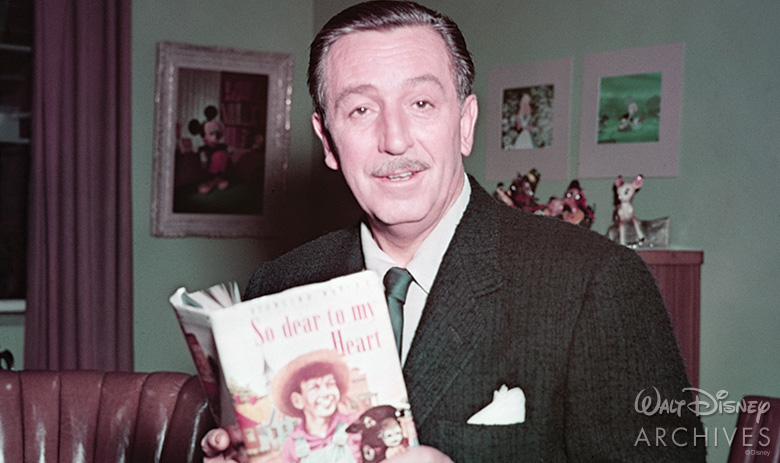LGBT+
How the LGBT movement hijacked Walt Disney’s storytelling empire
“I have watched constantly that in my work the highest moral and spiritual standards are upheld, whether my productions deal with fable or with stories of living action,” Walt Disney wrote in 1949. “I was grounded in old-fashioned religious observance. My people were zealous members of the Congregational Church in our hometown, Marceline, Missouri.” Indeed, one of the films he called “especially close to me” was So Dear To My Heart (1948), based on a book by Sterling North about a young boy, his black lamb, and Granny Kincaid, who “lives by The Book” and infuses her conversation with Christian wisdom. Disney said it reminded him of his own childhood.
I spoke with someone recently who met Walt Disney when he was a boy, and he described a warm, kind man who loved children. I wonder what Walt would think of his company now. I’m disinterested in defending the Disney canon, but what is undeniable is that Walt was a cultural icon and storytelling pioneer who sought to bring classic stories to millions—those of the Brothers Grimm; Felix Salten; A.A. Milne; P.L. Travers; Rudyard Kipling. You can dislike his adaptions and revisions—many devotees of the original books do—while recognizing that Disney would have been appalled at the accusation that he was trying to corrupt children.
His heirs, however, are a different matter. The storytellers of the inherited Disney empire are leveraging the power of an American icon to bring the Sexual Revolution to children, betraying the beloved brand and poisoning the social imaginary of our culture. The examples are endless. A German series on Disney+ literally features an 18-year-old who gets pregnant after a one-night stand with the Devil. Feature films headline gay teen characters; the company has promoted a drag show for children; featured same-sex families and kissing lesbians; and inserted LGBT content into its entire repertoire while apologizing for the old-fashioned films that built their fame.
Back in the 1980s, Disneyland was sued over its ban on same-sex dancing on couple’s nights; when Florida Governor Ron DeSantis passed the Parental Rights in Education legislation in 2022, the company mobilized to back the LGBT movement. Executives hosted an all-hands meeting called the “Reimagine Tomorrow Conversation Series,” in which executive producer Latoya Raveneau stated that Disney was implementing a “not-at-all-secret gay agenda” and “adding queerness” to all children’s content. Production coordinator Allen Martsch announced the creation of a “tracker” to ensure that the company is creating enough “canonical trans characters, canonical asexual characters, [and] canonical bisexual characters.”
Disney’s corporate president Karey Burke agreed, affirming her support for the “many, many LGBTQIA characters in our stories” and reiterating Disney’s commitment to making sure that at least 50% of the characters displayed on-screen are sexual and racial minorities. The tomorrow that Disney is reimagining is one created in the image of the LGBT movement.
It’s important to note that Disney knows this pivot hurts them financially. They are consciously using the reputation of their founder and the cultural clout of their storytelling to accelerate social change. This pivot costs them profits, but that is a trade-off they appear willing to make. In Disney’s SEC filing for the year ending on September 30, for example, they admit this up front: “We face risks relating to misalignment with public and consumer tastes and preferences for entertainment, travel and consumer products, which impact demand for our entertainment offerings and products and the profitability of any of our businesses.”
“Generally, our revenues and profitability are adversely impacted when our entertainment offerings and products, as well as our methods to make our offerings and products available to consumers, do not achieve sufficient consumer acceptance,” Disney stated. “Further, consumers’ perceptions of our position on matters of public interest, including our efforts to achieve certain of our environmental and social goals, often differ widely and present risks to our reputation and brands.” In short, many of Disney’s recent offerings constitute “efforts to achieve social goals,” including the further mainstreaming of the LGBT agenda.
The company has reportedly lost a billion dollars on just four of its recent films, but social change can be expensive—and, it must be noted, major LGBT lobby groups such as GLAAD have been demanding that Disney move in this direction for years. The LGBT movement has long seen Disney as the ultimate American prize: once you capture the company that defined childhood for millions of Americans, you can begin the work of redefining childhood for millions more. Disney’s executives are not merely profiteers; they are evangelists attempting to bring the rainbow gospel to screens in every home in the United States and around the world.
“Our greatest national resource is the minds of our children,” Walt Disney once said. His heirs still understand that, and that is why they are seeking to utilize his empire to indoctrinate a new generation in the tenets of the Sexual Revolution. “The most important thing is family,” Walt observed. “If you can keep the family together—and that’s the backbone of our whole business, catering to families—that’s what we hope to do.” Those who run his company today still believe that, too—but now, they have something very different in mind. If Walt were alive to see it today, I suspect he’d tell parents to keep the films that bear his name away from their children.








